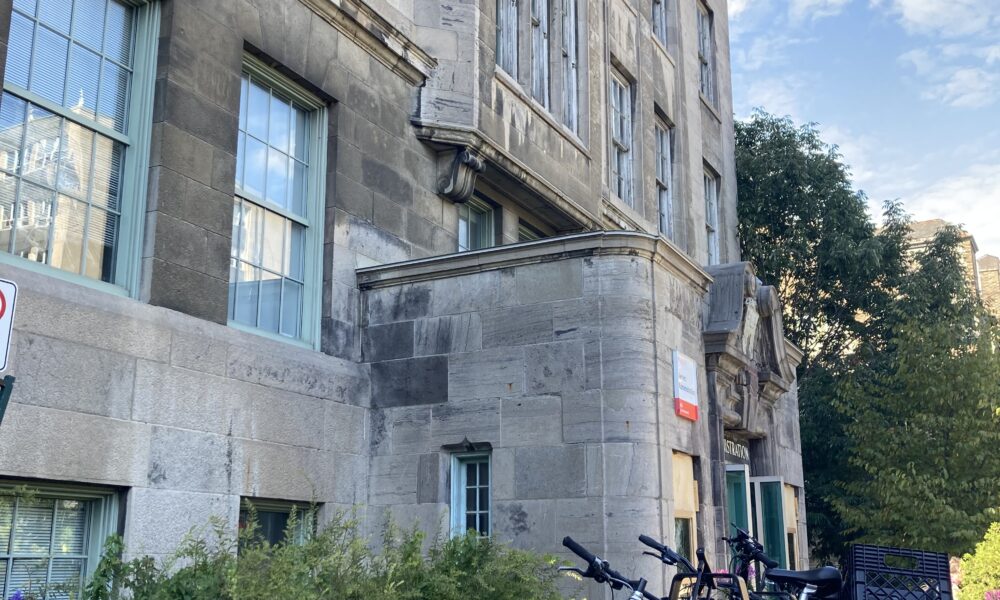Provost and Executive Vice-President (Academic) Christopher Manfredi hosted a virtual town hall on McGill’s finances and the 2024-2025 budget on Nov. 19, addressing the university’s growing fiscal challenges. The meeting discussed McGill’s projected $37 million CAD deficit by fiscal year 2028, driven by governmental pressures on enrollment-driven revenue, including a restructuring of governmental funding policy, tuition increases for out-of-province students, and partial re-regulation of tuition for international students.
Manfredi opened the town hall by outlining McGill’s primarily incremental budget model, where each faculty is attributed a permanent base budget that is adjusted annually to take into account university policy and salary adjustments. By centralizing faculties’ revenue streams within the university, the incremental budget model promotes fiscal stability, providing a safeguard against sudden changes in government funding policy that could disproportionately impact certain faculties.
The Provost forecasted that the university’s deficit for the fiscal year 2024 is expected to slightly surpass the provisional budget’s estimated $12.1 million CAD shortfall approved by the Board of Governors in April. With roughly 80 per cent of McGill’s revenue being enrollment-driven, Manfredi emphasized changes in government policies as the main factors behind the fiscal deficit.
McGill estimates the implementation costs of the Canada Award Program, designed to mitigate out-of-province tuition hikes, are $3 to $4 million CAD for this year. Additionally, the partial re-regulation of tuition for international students, which allows the provincial government to claim a larger portion of tuition fees, has resulted in a revenue decrease of $5,000 CAD per student. The Provost highlighted the provincial government’s decision in the spring to revamp the funding formula for universities as the key driver for McGill’s declining revenues in relation to its expenditures.
“That had an impact of a net revenue loss for McGill for this fiscal year of $9 million [CAD], and as it rolls out over the next four years, that will mean a $37 million [CAD] loss by fiscal year 2028,” Manfredi said. “That’s $37 million [CAD] out of our revenue that we’re going to have to find somewhere else.”
Manfredi noted that the reduced spending capacity of the university and governmental caps on infrastructure spending have also negatively impacted academic units, forcing the university to cut down on hiring.
“It’s limited the local ability to replace administrative staff, and that, of course, has led to reduced levels of support for students and increases in delays,” Manfredi said.“The cap on capital spending has resulted in delays on construction and renovation projects, and those delays were felt differentially across the university.”
Moving forward, Manfredi has signalled a shift of McGill’s incremental budget model in favour of a hybrid model, geared towards incentivizing individual faculties to increase their revenue streams by increasing productivity and reducing costs. The next town hall on McGill’s finances is scheduled for January 2025, where the fiscal year 2025 budget will be presented alongside detailed plans for expenditure reductions and budgetary reforms.
Students Society of McGill University (SSMU) Vice-President University Affairs Abe Berglas expressed their concerns regarding cuts to infrastructure spending projects. They stressed the potential discriminatory implications of these cuts on disabled students in particular.
“Whenever you lower service standards, it affects some groups a lot more than other groups. A project that is being limited is the Universal Access Capital Projects Fund, and that’s a fund about infrastructure projects that relate to accessibility for campus,” Berglas said in an interview with The Tribune. “There are other projects regarding accessibility that will also slow down, and it affects everyone, but it also disproportionately affects disabled students.”
President of the Association of Graduate Students Employed at McGill (AGSEM) Magnus L’Argent also raised concerns regarding the announced rising security costs on campus after meeting with Manfredi on Nov. 14.
“AGSEM hopes Provost Manfredi is much more transparent in the future with the security practices and budget of McGill,” Magnus wrote to The Tribune.








